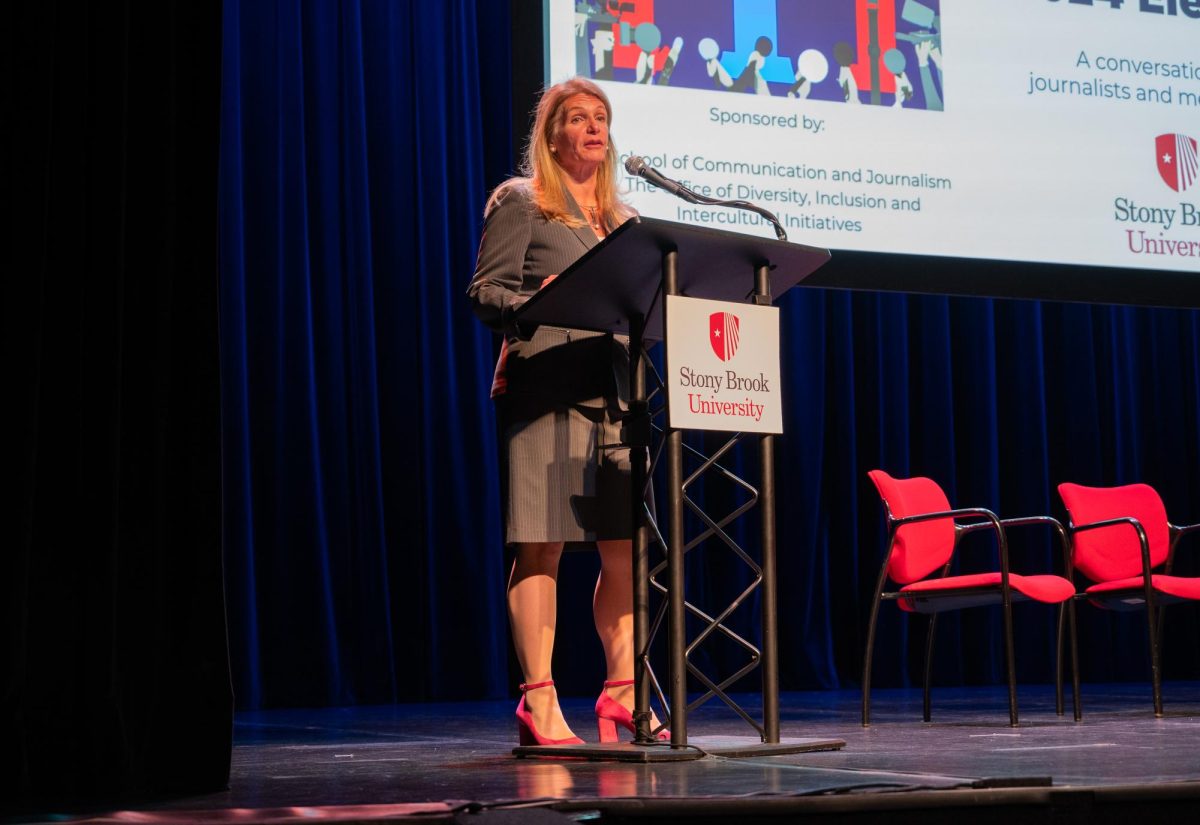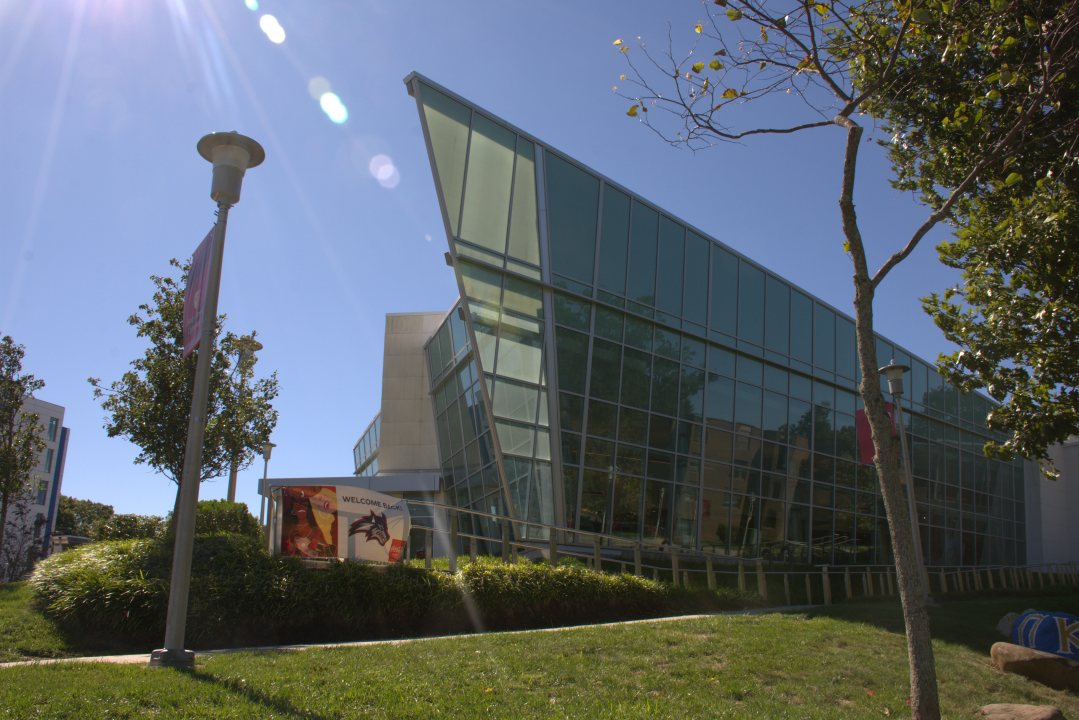
Dr. Shimelis Gulema is an associate professor at the Department of Africana Studies and an Ethiopian American who has lived in the United States for almost two decades. A Statesman reporter sat down with him to discuss race dynamics in the United States. The transcript has been edited for length and clarity.
Q: When you first came to the United States, how was your experience? How does race play a role in your daily life?
A: I came here to do my doctoral studies. I went to the West Coast to UCLA [University of California, Los Angeles]. I chose the school because there was a large community that I knew of, so that was a kind of a smooth adjustment to America.
As the years went by, I came to understand the intricacies of American politics, especially race relations. In Africa, we don’t talk much about race. There are even people who say that they don’t know that they are black until they move to a predominantly white country because that is not in the daily language, in Africa at least. But here in America, because of the color of your skin, you feel that you are gazed at. There’s this gaze when you go into a place like, it could be a school, a restaurant, a bar, people stare at you in a different way and mainly because of the color of your skin. So blackness — being black— assumes a very different meaning, especially for a person who came from Africa. That blackness means a lot. Being black has implications, consequences in your life and in your everyday relationships with people.
Being in person, actually here in the U.S., is a very different experience for me and many people who came to realize the conditions, the experiences, the politics of African Americans or people of color in this country. Now there is this idea of solidarity, the sharing of their sense of abuse.
Q: Is there that kind of unity in Africa? Many people think of Africa as one place, but is there actually a unity around blackness there?
A: The idea of blackness as a unifying idea, as a unifying ideology, has a very long history. The idea of pan-Africanism for us began in the 19th century and one of the organizing principles of pan-Africanism is the idea of blackness. Blackness is used to unify all Africans because this is a shared experience. It respects the way you are and respects which ethnicity you come from. Africa is the most diverse place in the world in terms of ethnicity, culture and language and the one thing that unifies all this is blackness. But at the same time, Africa is not a homogenous place. You can see distinctions.
Race is important, especially in areas where there are different racial communities. Like, for instance, in South Africa where blacks have the majority, 80%, but then there are at least 10% white European settlers. There is also a significant Asian community in South Africa. So you can see racial tensions. Race has a very important meaning in that country because of that racial mix.
But in other places, we don’t see that. The main line of distinction is not race, but ethnicity. Because we come from different ethnicities and we speak different languages, it can lead to violence if you don’t have a framework to accommodate these ethnic differences. That partly explains why we do have this kind of crisis in ethnic conflicts like the genocide in Rwanda. Although the people who fought the war were the same in many ways — sharing the same culture, speaking the same language — Tutsis and Hutus belonged to two different social communities. Race in terms of being black is important in Africa, but it acquires a very different significance when you move to a place where you have non-black majority, like U.S. or Europe.
Q: In the United States, why do you think race became so prominent?
A: Because in a way, the foundation of America has had a very powerful racial element from the very beginning. For instance, the slave trade was not entirely based on economics. That was made possible because of race. Race is very integral, very key to the American fabric. You cannot talk about exploitation, oppression and segregation in this country without injecting the notion of race because many of these things are race-based. Segregation, for instance, is not entirely about the class differences between poor and rich. It’s also about race. In fact, there’s a convergence between race and class, because people who are predominantly poor are also predominantly people of color.
Although America is founded on the republican idea of equality and freedom, these foundational ideas are not equally applicable to all communities. That’s the problem. Enlightenment talks about the fact that all human beings are equal, but in practice that idea does not apply to people of color. The Global South, the non-European world did not benefit from that enlightenment thinking.
Q: “Black” vs. “African American”: What are the correct terminologies when talking about race, and why are there more diverse terms when people are describing their race.
A: Black is a unifying terminology used going back to the early period of American history. Blackness is a very inclusive, umbrella term. African American is a very specific terminology referring to the experience of the African American community in this country.
There are many blacks who consider themselves black but not African American. Recent African immigrants to the U.S., people from Kenya, from Ethiopia, prefer to call themselves African and not African American. They make that distinction because they feel that the term African American is not inclusive of people of color who came to the U.S. recently. Kenyans or Caribbeans for instance, prefer to be called Kenyan Americans or Caribbean Americans. Some others prefer to be called Jamaican Americans or Haitian Americans. These terms are not arbitrarily invented, created or adopted. They have a meaning because they carry a message. They are like codes; they encode history. And that’s why people stick to them because they convey a particular, specific message when they use them, whether it is in a very negative way or a positive way.
Identity is a very powerful force of affiliation. There are even sub-national identities. People want to refer to themselves by their ethnic terms. So instead of calling themselves Rwandan American, people might say they’re Tutsis.
So depending on the situation, people will pronounce or conceal different terms. It’s partially a functional change in politics. There are times when it’s useful to be called black or African American, but then there are also times when you would prefer to be more specific, like on censuses for instance.
There are stories in which people refuse to call themselves black, but prefer to use their country of origin, like Kenyan-American, instead of considering themselves African American or black. That could be beneficial because of recognition.
Recognition is very powerful. People fight today for recognition — to be recognized, to be seen, to be known. Because the powerful world refuses to see some communities, because some communities have become invisible. There is a kind of invisibility and people fight: “No, we exist. This is who we are, and we want to be seen, and we want to be recognized, and this is our name.” So in that sense, I understand why people refuse to adopt this very generic terminology, and insist on using their own names.
There are two types of identity: there are others identifying you, and there’s self identification. In most cases, other identifications are reductive, simplistic, stereotypical, so you focus on the self. That’s the way you see yourself, the way you see your place in the world.
Q: How do you identify yourself?
A: The current categories of identification are not sufficient enough to describe the complicated, entangled identities we have in this world. I am African, but I do feel radical empathy with people from other parts of the world, irrespective of the colors of their skin. So being African should not diminish my other units as a human being. I consider myself a human being first, as an African and as an Ethiopian American.
We have multiple identities. We use them or not use them depending on different circumstances. The modern human condition is not to be constrained by national boundaries. The modern human being is a human being who transcends multiple boundaries, speaks more than one language, feels unity with more than one community, within and beyond the national boundaries. Citizenship doesn’t capture these complex identities we have.
In the future, if there is a term called the citizen of the world that captures the way I feel about myself and my place in this world, I would be a citizen of the world.
Q: What was your experience like living in the United States for almost 20 years? Were you made aware of your identity when you first came to the United States from Ethiopia? Did you ever feel excluded or welcomed?
A: It depends on the circumstances, but in general, I would say one experience that will last with me is that I know myself now much better than before. I did not ask questions about who I am before, because there are certain questions that you can only ask in this country, like ones about race. It was a very important issue for me and for many people, but now it’s a very important way, perspective to see myself, and my place in the world. The race prism, the race perspective is very important in this country.
This is not theatrical. This is everyday life, because I can see that in my daily, everyday communication with people. The way people react to you, respond to you, interact with you is partly dictated to some extent with me being a black person. The care which people take when talking about certain issues are very reflective of race. The ambivalence people feel about talking to a person of color comes from that idea of race. Race is very relevant. This is a life I live, everyday.
My experience is different from many other people, including people of color. But I think something that we share is that there’s some distance. Some distance that you feel when you interact with people. Not everyone, but it can feel like there are instances in which people are not easy or comfortable to have a conversation on issues of importance because they don’t know where it leads to.
For example, I was discussing poverty and aid in Africa with a colleague. The conventional wisdom is that poverty is a result of African inefficiency: “this is their own failure, because they’re lazy, corrupt, inferior even” is a very common explanation. I was explaining it a different way because that’s not the real explanation for why Africa is still poor. I was trying to explain that by going back in time to historical experiences of colonialism and all that without denying the fact that Africa did contribute to their own misfortune.
And he thought race was critical in explaining why Africa is where it is today, that Africans as blacks have a fundamental problem, meaning they’re fundamentally inefficient, fundamentally corrupt, as if it’s something natural, intrinsic to the African gene. So those kinds of conversations become difficult. Because race is used, especially when you talk about Africa, as an explanation for why the continent is where it is today. It’s a constant.
Q: How should non-black people talk about race? How do we have discussions that will change the way people think about blackness and race?
A: I think there are different explanations as to why non-black people are reluctant to talk about race or black experience. They might find it difficult to talk about it for a number of reasons. Some may be innocent reasons, like they don’t know much about it, or maybe they don’t want to know much about it because it has become a toxic issue. You cannot ignore the fact there’s a sense of ambivalence, not completely rejecting the issue or completely embracing it. That ambivalence partly explains why race is a very complicated issue today.
I think to have radical empathy is a very powerful idea. Radical empathy is about asking fundamental questions and demanding fundamental answers. You can feel empathy toward injustices committed against the Rohingya community in Myanmar, but when it comes to radical empathy, I ask why? What are the fundamental origins, fundamental roots of social injustices committed by totalitarian states?
Take the black experience today. Many people, including white people, talk about feeling solidarity with the black experience, even fighting for them. But they don’t ask fundamental questions, because that question begins by asking, “Am I complicit in this? Am I benefiting from this privilege?” Radical empathy is about questioning our privileged positions.
I understand why maybe a white person expresses very powerful solidarity with a black person, but that expression of solidarity needs to begin with this fundamental question, “What is my position? How am I benefiting from this structure, this unequal power structure? Am I ready to be critical of my privileged position?” It begins with asking who we are, as human beings, as individuals.
Take the feminism movement. There are many men who share and who agree with the feminist ideas. That’s empathy. But it would be empty and meaningless if you don’t look at your privileged position as a man because we benefit from being a man in this world.
Q: Does radical empathy lead to change? How do we make change?
A: I think radical empathy is the beginning or one of the solutions, but it will not solve the fundamentals of the way we live in this world because these are structural issues. It requires fundamental restructuring the way the world is organized. And that’s probably why many people are supportive of Bernie Sanders, because he’s asking fundamental questions. This is a moral outrage. It is morally objectionable, indefensible to see a few people control more than 50% of the wealth of a country or a tiny minority controlling more than half of the wealth of the world. Radical empathy is not enough, so the next thing would be addressing these fundamental inequalities in the world.
I’m not talking about revolution. It means to ask serious questions about things like reparations. Reparations are not about financial compensation, they’re much more than that. They are about repaying society. Reparation for me is like repairing, reimagining, reinventing society. Reparation is a deep reckoning with who we are as individuals, as a country and as human beings.
Q: What’s the role non-black people play in this change?
A: I think this debate is about authenticity. The controversy around the book “American Dirt” raises some fundamental questions. Who can talk about the other? Is it only Mexicans that should talk about Mexicans? Is it only Africans that should talk about Africans? I don’t believe that. The controversy around her [author Jeanine Cummins] work was because she wrote without empathy or basic understanding of the migrant experience. But when we exclude people from talking about the other, we’re entrenching these racial barriers. We’re fighting against forces that transcend these racial, class, ethnic, national boundaries.
I think we need a transnational language, an international moral perspective that enables all of us, irrespective of our race, irrespective of our class to talk about injustice whenever it takes place. Being human is having the ability to talk about the other, to fight for the other, to feel for the other, to share.
The vocabulary, the language, the theoretical frameworks we have today are not capable of capturing the complexities of social reality. It’s like there’s a cup that contains languages, theories and frameworks we’ve created to understand this world. You can try to put very complex, diverse, social reality in that cup, but what usually happens is reality overflows the container, and it cannot be captured, it cannot be explained with the language and terms we have today. One way out is to change our language, our vocabulary when we talk about race.
The beginning of learning about race is unlearning about race. Because there’s so much baggage, assumptions about race. To talk about race should begin with unlearning those stereotypes.
Q: What does Black History Month mean to you?
A: A luta continua, the struggle continues. The fight for social justice and equality has a very long history in this country. It didn’t start with the civil rights movement. The civil rights movement was the continuation of the legacy of the struggle for equality and for social justice. But then some 60, 70 years later, the race-based oppression, injustice and incarceration is still very much alive.
Is it back to square one? No, it’s not. There’s so much progress made over the past 16, 17 years and since the civil rights movement began. There was a black president, the first African American president in this country. But when you see these happening all over again, then you ask the question what has been achieved? What has been lost? What went wrong?
What went wrong, not just with the struggle for equality, but what went wrong in this country as a whole, as a nation? This is a question not just about African American struggle, but about America as a nation. That’s why American leaders need to have the courage to confront the brutal truths and to make a political commitment to address them.
There’s need for a reckoning in this country. And that need for reckoning applies not just to one African American community, but all other communities in this country. Because if you call yourself a citizen of this country and if you feel this radical empathy as a human being, as a moral community — not just a political community — you must acknowledge and make a commitment to confront brutal truths, original sins of this country: the legacy of colonialism, the legacy of segregation, racism and slavery.
















